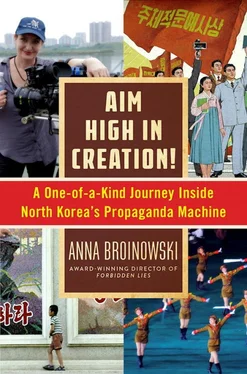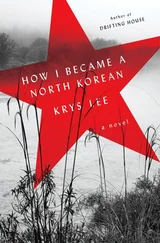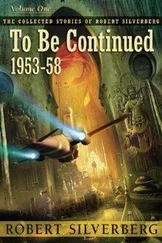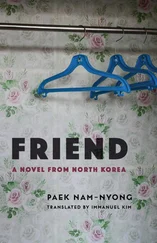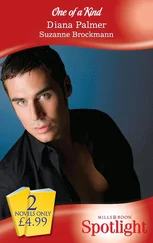From behind a hedge, we hear the tinny sound of “Hwiparam”: a folk song about a traditional wooden whistle, beloved by children on both sides of the DMZ. The driver is snoozing in the van with our Sony locked inside, and we don’t want to incur the wrath he showed Mr. Pei by disturbing him, so Nic picks up her mini 5D and we climb through the hedge to investigate.
On a leaf-strewn path, people of all ages are dancing as a grandmother rides the volume on an old boom-box. Mothers swirl their scarves around each other flirtatiously, singing out loud. Two soldiers, their khaki shirts unbuttoned to their waists, weave arm in arm, followed by a line of ecstatic children doing their best to imitate them. “La la la la la la, Hwiparam!” The group sings as one, smiling broadly when they see our camera. I feel like we’ve stepped inside a jolly village song from one of Kim Jong Il’s movies. If Pyongyang is a giant open-air musical, this is its most joyful scene. These people are undeniably happy, and their dancing is spontaneous. There’s no way Q could have arranged for them to be there ahead of time: we chose to picnic on the other side of the hedge under six minutes ago.
I watch the dancing North Koreans, and the words of Chun, the TV entertainer from Seoul, come back to me: Any song without politics becomes an instant hit in North Korea.
“Hwiparam” is a song about a whistle. It doesn’t mention the Kims once. Strangely, it has yet to be banned.
THE PROBLEM OF GAY PEOPLE
LURKING IN THE BOWELS OF EVERY documentary is an ethical demon. The situations that awaken it vary—but they all boil down to the same impossible choice: honour the trust of your subjects, or betray it to entertain the audience. Michael Moore interviewed the CEO of General Motors twice for Roger & Me , but left the footage out of the film. Joaquin Phoenix pretended to be insane in I’m Still Here , then admitted it was all a stunt on Letterman. Sacha Baron Cohen duped his American subjects in Borat so often, their lawsuits ate up a large part of his box office. I’m not immune: in Forbidden Lie$, I was honest with Norma until I realised the only way I could catch her lying would be to lie to her myself; in Helen’s War , I promised my aunt, anti-nuclear activist Dr Helen Caldicott, that I’d delete a scene where she dropped the F-bomb, then kept it in (with her eventual consent), because it was the most entertaining part of the film. And now, here I am with Q and Sun Hi in the Hana Music Information Centre, calmly aware that I’m about to deceive them.
Things go smoothly at first: the dewy-eyed guide with the flawless skin repeats her grief-stricken rendition of Kim Jong Il’s final visit with impeccable precision—even crying on cue, just as she did the last time, when Kim’s tattered glove appears on the LCD screen. Then Q shuts us down: “You must not use any images of the Dear Leader, or of Great Comrade Kim Jong Un.” This is news to me. We’ve already filmed hundreds of portraits of the Leaders—and as long as they are not out of focus or cropped, Q has given us his blessing. Now, without explanation, the Hana Music Centre’s blurry slides of Kim Jong Il with the DVD player, Kim Jong Il with the Hana workers, and Kim Jong Il with Kim Jong Un watching the Vienna Philharmonic play “The Blue Danube,” are off limits.
I remember Nick Bonner’s warning in Beijing: that if our minders ask us to do anything that seems nonsensical, we must obey. But when Q tells me I must delete the guide’s speech, and the Kim Jong Il slides along with it, I rankle. Rushes are as sacred to the filmmaker as sources are to journalists: you protect them like a baby. I don’t understand why the free world should be denied the chance to see Kim’s holy glove because of some red tape at Hana Music. There’s nothing offensive about the images: Kim’s not wearing a kooky moustache; no one’s photoshopped his hair. He’s not wielding an Uzi like he does in Kim Jong Il vs Hulk Hogan or clomping around on puppet strings à la Team America . The slides are obviously for public consumption—they’re playing in full view of the music-loving citizens of Pyongyang, who are plugged into the Hana Music Centre headphones, apparently enjoying the regime’s latest hits.
I nod politely at Q, and turn to Nic with a sigh: “I’m terrifically tired.” It’s the code phrase we dreamt up in Beijing. She immediately knows what to do: “These are the files,” she says to Q, pointing out the little square icons on the Sony’s operating panel. “And this is how you wipe them.” She highlights the offending clips and drags them into trash. The camera emits a conclusive bing but I’m not worried: the low-res versions of the clips still exist on the nano flash drive, connected to the back of the camera.
“We’re happy to give you our hard drives later, so you can confirm they’ve been deleted,” I add, making a mental note to copy the nano to my laptop tonight. “Yes,” says Q, without his usual smile. Sun Hi looks between us, concerned. Then, to my horror, Q cancels our next shoot on the Taedong River Bridge, and Team Gas all pile back into the van to drive to the Yangakkdo at high speed. Q wants to check our drives immediately.
Nic and I sit in the back in nerve-racked silence. My lie has trapped us in a bigger one: if I don’t pull the clips off the nano straight away, Q will know I’ve deceived him. “Let’s get the camera ready to download,” I say to Nic, and she starts unplugging cables from the front of the Sony. I hold the back of the camera in my lap—using the messy spaghetti of wires to discreetly unhook the nano drive and tuck it into my sock. I do it instinctively, as I would on any other shoot. It wouldn’t be helpful to remember that right now I am in North Korea without a passport.
We follow Q into the Yangakkdo, trying to look relaxed, and he takes charge. Nic must wait with the camera in the cafe, and Sun Hi is to accompany me to my room. Ostensibly, she’s there to help carry down the orange drives on which we store our masters. But she follows me like a shadow—even into the bathroom, as I look for a card reader. Clearly, I’m not going to be able to copy the nano in private—I’ll have to do it in plain sight. “Oh look, a bra!” I say, scooping some underwear off the floor. Sun Hi turns bright red and giggles. Her sense of what’s naughty sits around where my daughter’s did when she was five. Sun Hi turns away in embarrassment, and I seize the chance to adjust the nano in my sock. Thank God my jeans are slightly flared, I think: that little bulge wouldn’t just derail the shoot; it would derail us too.
We reassemble in the cafe, and Nic does the straight work of plugging the drives into the Sony to copy the high-res footage. Meanwhile, I rummage under the table for the nano, slide it into the card reader, and connect it right there on the table to my laptop. “Here’s some stuff we shot yesterday,” I say, and pull up a full-screen clip of the tae kwon do fights as the nano chugs away underneath. Sleight of hand, the gambler’s skill, the magician’s assistant: all proven ways of getting the mark to look the other way. In this case, the acrobatic Chen and his black-belts are working wonders on Q and Sun Hi. By the time the slides of Kim Jong Il are sitting in “Self-Saucing Puddings,” the nano is clean and ready to check. Mission accomplished. I doubt Kim Jong Il’s glove will ever end up in my film—and I’m aware that if it does, our friends could take the rap. But I will not let North Korea censor my right to decide. From his murky tank, Simon Sheen gives me a supportive blink. I blink back and, in defence of free speech, order a Coke.
Читать дальше
